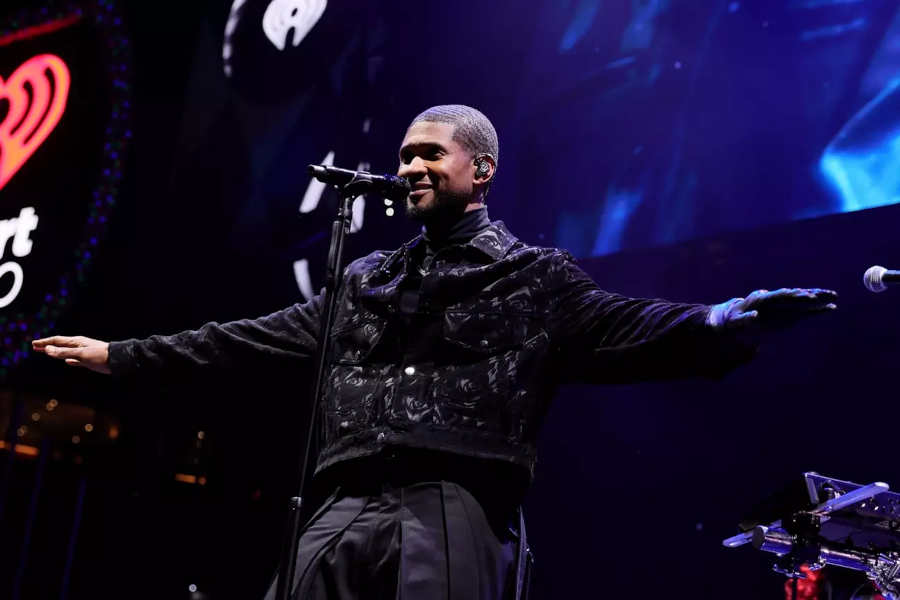Usher’s Unpaid Triumph: The Strategic Brilliance Behind His Super Bowl Performance
Usher’s recent Super Bowl halftime performance at the Allegiant Stadium in Las Vegas has been hailed as ‘one of the best ever’ by fans and critics alike. Despite not receiving any payment for his electrifying 15-minute show, the strategic brilliance behind Usher’s decision is now coming to light. In this article, we delve into the reasons why Usher chose to perform for free and how this calculated move aligns with his broader career strategy.
The Grand Stage and Strategic Exposure:
Performing at the Super Bowl halftime show is an opportunity to showcase talent on one of the grandest stages in entertainment. With almost 115 million viewers tuning in for the 2023 Super Bowl, Usher recognized the immense exposure that comes with captivating such a massive audience. Beyond his existing fan base, this platform allowed him to impress those less familiar with his music.
Increase in Sales:
The halftime show exposure has historically translated into a significant boost in music sales for artists. Examples such as Justin Timberlake, who experienced a 534 percent increase in sales after Super Bowl 52, and Rihanna, with a 640 percent surge in Spotify streams following her 2023 performance, highlight the potential impact on an artist’s commercial success.
Usher’s Timely Album Release:
Aligning seamlessly with his Super Bowl performance, Usher strategically released his latest album, “Coming Home,” just days before the event on 9 February. The halftime show essentially served as a captivating advertisement for his new music, amplifying its visibility among millions of viewers.
Strategic Timing:
In the context of the Super Bowl, where companies paid up to $7 million for 30 seconds of ad time, Usher’s decision to use the halftime show as a promotional opportunity for his album was a savvy business move. The exposure provided a valuable platform to showcase his new work to a vast and diverse audience.
The Ripple Effect: Album and Tour Sales:
Beyond album sales, Usher’s calculated move extends to his recently announced world tour. Capitalizing on the heightened attention generated by the Super Bowl performance, tickets for his tour went on sale immediately after the show. The strategic timing ensures that fans, inspired by the halftime spectacle, are eager to witness Usher’s live performances, driving ticket sales.
Long-Term Payoff:
Although Usher didn’t directly profit from the $50 million Apple Music pays the NFL to sponsor the Super Bowl halftime show, the long-term payoff is evident. The exposure, combined with the strategic release of his album and tour announcement, positions Usher for substantial financial gains in the coming months.

Conclusion:
Usher’s decision to perform at the Super Bowl without monetary compensation is a testament to his strategic foresight in navigating the music industry. By leveraging the unparalleled visibility of the halftime show, strategically timing his album release, and capitalizing on the promotional momentum for his world tour, Usher has crafted a masterful plan that ensures his performance will pay off both creatively and financially in the long run. In the world of entertainment, sometimes the value of exposure outweighs immediate monetary gains, and Usher’s Super Bowl triumph serves as a prime example of this strategic brilliance.
Credits: Theo Wargo / Staff/Ethan Miller / Staff





